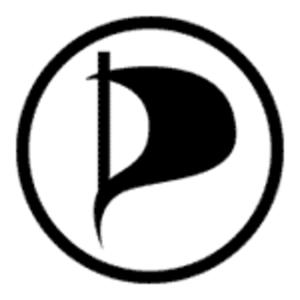In a sign of how strongly Internet-related issues can affect real-world politics, the German branch of the Pirate Party has won 15 seats in Berlin’s regional parliament.

The Pirate Party, which was was originally founded in Sweden in 2006, is a political party whose platform is built around issues like reforming copyright and patent law, digital privacy and radical government transparency. The organization “promotes in particular an enhanced transparency of government by implementing open source governance and providing for APIs to allow for electronic inspection and monitoring of government operations by the citizen,” according to its Wikipedia entry.
It counts among its founding principles a desire to “change global legislation to facilitate the emerging information society, which is characterized by diversity and openness.”
The party is no stranger to controversy. It is loosely linked to the Pirate Bay, the BitTorrent tracker whose operators were prosecuted for copyright infringement in 2009. It also donated server space to WikiLeaks as other ISPs have booted the organization from their servers.
Its Berlin upset marks the biggest electoral win yet for the party, which won two seats in the European Parliament in 2009. Their German victory is politically significant within the country because of the blow it delivers to German Chancellor Angela Merkel’s governing coalition and because it secures federal funding for the party. While they’re still a minority, the win gives them enough seats to have a say in the regional government.
What Does It Mean For the Web’s Role in Politics?
Its meaning beyond the country’s borders may be even more significant, even if the party’s popularity fails to spread beyond a few European countries. If nothing else, it demonstrates the role that the Internet and issues related to the digital realm can play in electoral politics.
For example, much has been made of the growing impact the Web has had on U.S. politics, especially during the 2008 election, when Barack Obama’s campaign used social media and Internet-based fundraising tools to mount an unexpected challenge to more established candidates. Yet, as the U.S. gears up for its next election cycle, its political system itself is largely unchanged, still dominated by the same two parties.
The apparent rise of the Pirate Party marks the first time that a political party has been successfully built on issues pertaining directly to the Internet and digital rights. Such matters are increasingly on the minds of voters everywhere, as people live more and more of their lives online. Even if upstart parties like this don’t gain mainstream traction anywhere, they’re bound to offer a few lessons to major party politicians, for whom the Web is now not only a crucial campaign tool but an important component of policy itself.

















